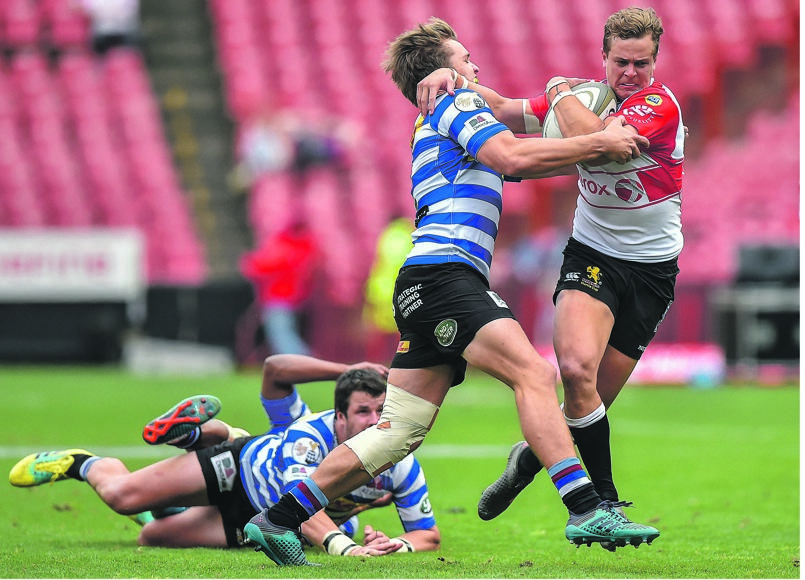
Asked which nation naturally lent itself to the brutalities of no-nonsense defence, former England defence coach Phil Larder – whose methods helped the Poms win the 2003 Rugby World Cup – enthusiastically identified South Africa as a coach’s dream.
The former rugby league man’s reasoning was something along the lines of: If you were to train a camera on the faces of most kids in a training session, their eyes light up when the ball is coming to them. With South African kids, he reckoned, the smile is only ever there when there are prospects of smashing some poor soul in defence.
It’s a theory given weight by the Springboks’ last stand against New Zealand in Wellington last weekend, a 36-34 upset built on the foundation of 235 tackles. Yet, hours later, two of the country’s biggest provincial unions, Western Province and Golden Lions, combined for a 103-point match, won 65-38 by the former in a Currie Cup game in which defence felt like an afterthought.
Looking at this year’s Currie Cup scores in general, it would appear South African players are more enthused by attack instead of defence. Heading into this weekend’s round of fixtures, the seven teams in the premier division had combined for 153 tries and 1 095 points from 17 matches, an average of nine tries and 64.4 points per match. These numbers would convince the layman that defence is being neglected, but the disgruntled defence coaches from that Province-Lions game, Joey Mongalo and Normal Laker, disagree.
Province’s Laker gave an interesting reason for this: “If you look at all the results up country, there were more points scored there because the games were at altitude, played at quick tempo on quicker grounds.
“The teams based at altitude like playing with quick taps and quick line-outs to keep the ball in play as long as possible to tire the coastal teams out. Twenty minutes after half-time [in the Lions game], I went up to [centre] Ruhan Nel, who never gets tired, and he said he had no legs any more. Also, with the competition only being a single round this year, it’s also worked out that most of the games are at altitude – the matches around the coast have been closer.”
Both agreed, however, that changes to the law and the consequent focus by teams on attack, rather than defence, was the bigger explanation for the basketball scores currently gripping the Currie Cup.
Mongalo said: “People want to play an exciting brand of rugby, but it comes with consequences as it puts defences under more pressure.
“Two years ago, the tackler was allowed to come in from anywhere in the ruck, now he has to come through the gate again, which means the attacking team gets quick ball.
“The last thing you want as a defence coach is quick ball and turnover ball. My main gripe is how many tries we concede from turnover ball from trying to push the attacking envelope. Of the nine tries we conceded against Western Province, six were from turnover ball.”
Laker supported Mongalo’s point about how tough it has become not to concede tries by pointing to the fact that the Boks’ win against the All Blacks was a modern-day defensive epic, yet they still conceded six tries.
However, both are unimpressed by the untrammelled try-scoring, as defence coaches are a glass-half-empty lot.
Given Province’s offloading game, Laker, who also believes the teams that jump to big leads early in matches switch off later and allow scores to balloon as a result, can stomach conceding a maximum of three tries, as long as the tackle efficiency percentage is constantly between 88% and 90%, with the vast majority of those tackles dominant.
Mongalo would ideally concede none, but says it’s “less about how many tries are conceded if you look at the Bok game. If you just take the scoreline, it’ll fool you. I’m more interested in the effort.”
Looking at ways to swing the pendulum back their way, both are keen to get players “excited about playing without the ball again”, says Mongalo.
“It’s our challenge; what we get paid for. We try to simulate and educate – simulate as many pressure situations as possible in training and educate the players enough to find loopholes in the laws.”




 Publications
Publications
 Partners
Partners








